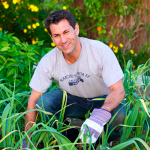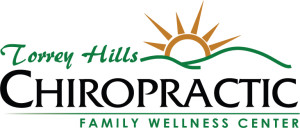Childhood Obesity Update
 September is National Childhood Obesity Awareness Month and for important reasons. Over the past four decades, obesity rates in children and adults have continued to soar and despite numerous attempts to stop the problem, both kids and adults alike continue to both eat poorly and lack proper exercise. Why? Could it be as simple as parental absences to explain why our children and adolescents are at an all time level of obesity and developing disorders including Diabetes? It may not explain all cases of obesity, but probably a majority. Once again, we have an issue of allowing children and adolescents to function too freely and rely on themselves and their peers to function in today’s society. “Hot lunches” have become more popular than the old homemade brown sack from home made with the heart of mom or dad including healthy, yet good tasting foods. Instead, much of what kid’s eat these days are either at the discretion of others or themselves based on what they might find in the pantry or buy when given money to get a snack. In fact, many children I have interviewed tell me that they make their own breakfast and lunches based on the foods their parents stock in the fridge. To make matters even more complicated, money is tight these days and better foods tend to cost more, so buying healthy food also contributes to the issue. Tack on both parents working and not being home to either make healthy foods or monitor what their child puts into his or her mouth, and the explanations seem to come together. But, the problem is not getting better, but worse.
September is National Childhood Obesity Awareness Month and for important reasons. Over the past four decades, obesity rates in children and adults have continued to soar and despite numerous attempts to stop the problem, both kids and adults alike continue to both eat poorly and lack proper exercise. Why? Could it be as simple as parental absences to explain why our children and adolescents are at an all time level of obesity and developing disorders including Diabetes? It may not explain all cases of obesity, but probably a majority. Once again, we have an issue of allowing children and adolescents to function too freely and rely on themselves and their peers to function in today’s society. “Hot lunches” have become more popular than the old homemade brown sack from home made with the heart of mom or dad including healthy, yet good tasting foods. Instead, much of what kid’s eat these days are either at the discretion of others or themselves based on what they might find in the pantry or buy when given money to get a snack. In fact, many children I have interviewed tell me that they make their own breakfast and lunches based on the foods their parents stock in the fridge. To make matters even more complicated, money is tight these days and better foods tend to cost more, so buying healthy food also contributes to the issue. Tack on both parents working and not being home to either make healthy foods or monitor what their child puts into his or her mouth, and the explanations seem to come together. But, the problem is not getting better, but worse.
Some have taken an educational approach to teach kids to “eat better” and regulate what they put into their bodies thinking that like the movies kids are shown about the results of driving drunk, that evoking fear might make a child think twice before eating that candy bar rather than a piece of fruit or a handful of nuts. But remember, we are dealing with kids, not adults. Kids are more interested in what takes the least amount of time and tastes good, rather than if what they ingest might cause some sort of health problem later in their lives. In other words, until late adolescence, children live in the moment, not the future and this is normal in terms of their maturity. Speaking of maturity, many parents think it’s great when their kids make their own food in that it seems “independent” or “mature”. Not when it comes to primary health and survival issues. Kids need their parents to feed, shelter, and protect them until they “leave the nest” after high school at the least. So, once again, the weight falls on the parents to provide and regulate what a child eats or not eats. In other words, we are back to being parents and looking out for our children.
But, when it comes to weight, fitness, and physical health, adults have trouble even taking care of themselves as most American adults are overweight themselves. So, to top things off, we are not modeling good health habits to our children either. Why has it become harder and harder for us to take better care of our children and ourselves? That’s a whole other article, but maybe it’s time for each family to take more responsibility for the health of their children and themselves. If we do this, we might actually reduce skyrocketing health care costs without waiting for the politicians to figure out how the government should “take care of us”. When it comes to food, this really isn’t rocket science. The media has saturated the airwaves with “what’s healthy and what’s not”. Everyone understands the concepts of “low fat”; “fiber”; “protein”; “water”; “eating smaller portions, yet more often”, and the importance of moderate exercise, getting enough sleep, and trying to lower stress as much as possible. The formula is the same, but compliance is another story. So, if you neglect taking care of yourself, don’t take it out on your kids. Below is an easy way to help your kids eat healthfully without both telling them “how much to eat”, and turning them into calorie counters, both of which tend to push many kids into eating disorders.
- Have a nutritious yet tasty pantry. What you put in on your shelves and in your fridge is open season for your kids.
- Cook for your kids, and cook good tasting, yet healthy foods. These days, many families do not eat together and many parents let their kids make their own meals. This is a bad idea unless you have a very mature child or teenager. There are plenty of books on healthy cooking for families out there.
- Make your child’s lunch. Forget the hot lunches. Pack your child a great tasting lunch with lots of options. Also, don’t forget the note to them that you love them. If they are happy, they will eat better.
- Give choices. Kids love to feel they have input. Give them a bunch of healthier foods to choose from.
- Serve water. My 10 year old asked me what the 4 most important elements in life were this morning. I told him water, food, fire, shelter, love, family, and friends. Kids never drink enough water.
- Mandate some sort of moderate exercise. Most overweight kids and adults are allergic to exercise. Get a dog and go for walks. Let them wear an i-pod. Play tag. Whatever, but do something, even if it’s for 10 minutes every day.
- Get them to bed. Sleep and weight gain are vital. When bodies are tired, they hold onto fat to generate energy.
- Notice their changes when they eat better and point this out to them. “You look great”.
- Balance is a good thing. So, don’t eliminate desert, just eat well beforehand and only serve one scoop.
- Take better care of yourself. How can we expect our kids to make good choices if we don’t? Set an example, but don’t overdue it.
Remember, kids are kids. We need to stop complaining and just do a better job as parents. Social change only happens in great numbers. Parents United is an appropriate title. They are still kids and it’s not too late before they grow up and read articles like this one.
______________________________________________________________
Dr. Keith Kanner is a Licensed and Board Certified Clinical Child, Adolescent, and Adult Psychologist and Psychoanalyst. In addition to a full-time private practice in Rancho Santa Fe, California, he is an Assistant Clinical Professor of Psychiatry in the School of Medicine at the University of California San Diego where he teaches both human development and also trains medical students how to better understand and relate to their patients. He also serves as the Director of Clinical Counseling for La Jolla Country Day School in La Jolla, California, and is a Clinical Professor at The San Diego Psychoanalytic Society and Institute. Dr. Kanner also sits on the National Board of Directors for Kids Korps USA, which is the largest organization in the country that teaches children and adolescents the importance of volunteering to help the community at large. As a father of three children, he is also a dedicated baseball, football, and soccer coach.










You must be logged in to post a comment Login